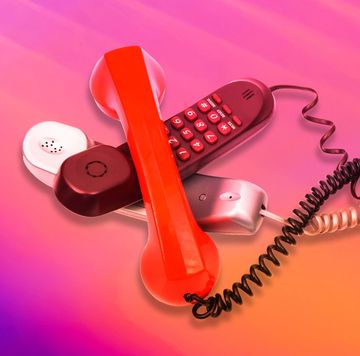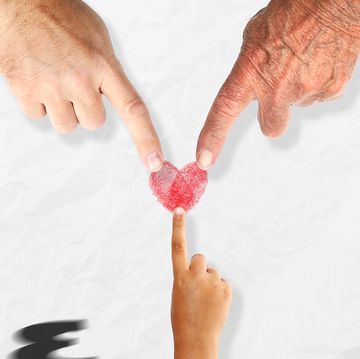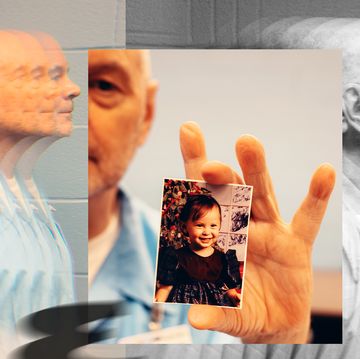Originally published in the October 2008 issue
UPDATES (2011): Tom Junod on Steve Jobs's death and dying
UPDATE (2012): Tom Junod on Steve Jobs, One Year Later
One day, Steve Jobs is going to die.
First, he is mortal. Second, the odds against him are not only actuarial -- the inevitable odds we all face -- they are clinical. Four years ago, he announced in a memo to his employees that he had undergone surgery, that the surgery was for the removal of a malignant tumor, that the tumor was on his pancreas, and that the surgery was, as he put it, successful. An exceptional man who specializes in exceptionalizing himself -- he has been an economic force for thirty years, and it's still hard to put him in a category, or even to say exactly what he does -- he responded to his disease by exceptionalizing it as well. He was at pains to say that the pancreatic cancer he had was not that kind of pancreatic cancer -- not the kind that kills you, without much room for exception, in six months or so -- but rather "a very rare form of pancreatic cancer … which represents about 1 percent of the total cases … each year, and can be cured by surgical removal."
Even in extremis, Jobs was being Jobs: He was telling the truth, he was simplifying the truth, he was exaggerating the truth, he was leaving part of the truth out. It is true that his cancer, originating not in the ductwork of the pancreas but rather in the islets of Langerhans, is slow growing and, in the words of one expert, can be addressed "with curative intent"; it is also true that even after surgery, the average patient lives about five years.
Knowing this, it is a tribute to the power of his own, well, power that people were shocked at the way he looked when he took the stage in early June this year to deliver the keynote address at Apple's Worldwide Developers Conference and present his company's usual slate of improvements and innovations. He was spindly as a mantis, and yet because he is who he is -- and was who he was -- he strode like a mantis as well:
Though rickety, he, as always, made you not want to be a fly. Nevertheless, as soon as the keynote was concluded, one of the developers in attendance called his wife on his iPhone and said, "Maybe we should sell our Apple stock." And within a few weeks the postconference postmortems had acquired such peremptory momentum that Jobs was compelled to phone The New York Times and explain that, yes, he was ill but not that
kind of ill.
The thing is, nobody should have been surprised. Steve Jobs has been saying that Steve Jobs is dying for years. From the beginning, death has been the hellhound on his trail; from the beginning, he has based his claim on immortality on the knowledge that he isn't going to make it. In the commencement speech he gave to the graduates of Stanford University a year after his cancer surgery, he diagnosed himself as "fine now," and hopeful to live "a few more decades." At the same time, he spoke of death as though it were a new Apple product -- that is, as "very likely the single best invention of life." He said that since he was seventeen, "I've looked in the mirror every morning and asked myself, If today were the last day of my life, would I want to do what I'm about to do today?"
Okay, people say things like that all the time in commencement speeches. But there's no doubt Jobs meant it; he has spoken this way often and since he was a young man, and his awareness of mortality has informed not just his life but every product his company has ever made. The aesthetics that he has demanded of his machines are not the frippery of corporate identity; they are the aesthetics he's demanded of himself. They are a response to something -- something deeply personal -- which is why they remain mysterious and impossible to duplicate. "It's almost like all the products are his own appearance," says Steve Wozniak, the guy who built the first Apple computer in the garage of the house where Jobs grew up in Cupertino, California.
It's a Dorian Grayish fable, transposed to the twenty-first century: Steve Jobs has become Steve Jobs by doing what nobody else has done before -- by treating computers not just as tools but as mirrors, by making technology not just the engine but the emblem of transcendence. One day, however, he will have to do what everybody else has done before, and will wind up demonstrating what it's like to be mortal, even in the age of the beautiful machine. And now that he has drawn undeniably closer to the day that has given all his other days their urgency -- now that the face staring back in the mirror has lost its shiny-haired California glamour and has taken on the frank rapacity of an old Arab trader -- it's worth asking what the pressure of continual existential awareness has done to him.
In the summer of 1999, Steve Jobs introduced two things: The first was the iBook, which did for the laptop what the first iMac had done for the desktop computer the year before.
The second was a perfected and, as it turns out, lasting version of himself.
At a moment in American history when Moore's Law -- the notion that computing power increases exponentially, doubling itself every eighteen months -- drove not only technological but economic expectations; when economic expectations were, consequently, utopian; when mankind suddenly thought it had the means to transcend its own misery via the computer chip, no matter how anonymously and inelegantly housed; well, at that giddy and irrational moment in American history, Jobs had the arrogance to stand up and say that he had a better idea, because he had a better product.
Like the iMac, the iBook was designed not to be an instrument of utility but an object of desire; like the iMac, it was designed to be a pleasure both to look at and to use; like the iMac, it was designed to be designed, and by introducing it a year after he introduced the iMac and two years after coming back to Apple, he made it clear that he was not going to play the same game as those whose idea of technological innovation was beholden to the number of transistors that could fit on an integrated circuit. Instead, he redefined technological innovation altogether. Unable to compete with the PC on the terms of Moore's Law -- on the basis of increased power and decreased price -- Jobs went around it, by extending its evolutionary expectations to the realm of design. Let the Windows-Intel revolution grind forward in its pursuit of predictable exponential advantage: Henceforth, Jobs would make an art of topping himself and only himself; henceforth, Jobs would make an art of arousing expectations only his products could satisfy; henceforth, Jobs would prove so successful at defining technological innovation in terms of design criteria that he succeeded at casting doubt on technology that was not, well, beautiful. He would do this, and he would do this again and again, and he would do this forevermore in the uniform he introduced when he introduced the iBook.
At the 1999 keynote, Apple -- after offering the iMac in a choice of five colors at a time when desktop computers were no color at all -- was offering the iBook in a choice of tangerine and blueberry. So it made sense for Jobs to put on the black mock turtleneck, the blue jeans, the New Balances. But then he never took them off. He never wore anything else. Two years later, he wore them to introduce the iPod; six years after that, he wore them to introduce the iPhone. The decision to give himself no decisions, the choice to deprive himself of choices, turned out to be final. Apple's product line would evolve; Jobs would not, preferring to cast himself as the mere conduit by which Apple's products made their way into the world. In the weeks leading up to his keynotes from that date forward, no one ever speculated on what Jobs would wear; they knew. The speculation centered only on what Jobs would introduce -- his next move -- which is exactly how Jobs wanted it. The uniform was not just part of his aura; it was his aura, a physical manifestation both of who he was and who he wasn't, and at least one of the people who had to negotiate with him found it unnerving: "What kind of person has a closet full of a hundred black turtlenecks and a hundred pairs of blue jeans? I'm telling you, he's
maniacal."
He was, then, the lucky sort of man who had found clothes suitable for every occasion. … Every occasion, that is, other than sickness and death. That's the problem with decisions intended to be final -- they are undone by finality. The clothes that were intended to provide a measure for the changes in Apple's products -- well, they were expressions of the genius of Steve Jobs, so long as Steve Jobs didn't start changing within them. Then they became a measure not only of the changes he'd undergone -- his diminishment -- but also of the challenges those changes would present to Apple. His identification with his company and its products could not be more complete, nor more personal, nor more individual. Every Apple computer, every iPod and iPhone, is signed -- though not literally -- by Steve Jobs. Remove that signature, remove his animating sense of ownership, and they become something less; they become gadgets, and Apple becomes just another cool gadget company, like Sony in the eighties.
So long as Steve Jobs is alive, Apple will always be more than a cool gadget company. It will always be more than a computer company. It will be more than an iTunes company or an App Store company -- more, even, than the sum of its parts. It will be part of the ongoing history of humankind's relationship to machines.
From the start, Jobs has been willing to resort to sometimes inhuman means to find, in the machine, a place for the human; he has been singularly unaccommodating in his quest to make the machine accommodating to the human touch. But he has always been about the machine. "You should never forget that Apple's a hardware company," says a former Apple engineer. "Always was, always will be."
Jobs has always been open in his desire for immortality; at the same time, he has always staked his immortality on the immortality of his machines. And machines always die. No matter how long they last, death always outlasts them. It takes the long view, and in the long view Apple is, in fact, Sony; in the landfill, the iPod is the Walkman. And so, although Jobs has changed three industries forever -- personal computing with the Apple II, music with the iPod and iTunes, and movies with Pixar -- and is on the verge of changing a fourth with the iPhone, his legacy is so large that it's uncertain, his success so comprehensive that it precludes successors. He is the ghost in the Apple machine, and "without him," says the engineer, "Apple goes on in some form but it's a different company." There is not another corporate executive in America or possibly in the world who has implanted the idea of himself so deeply in both his company's and his country's culture; not another corporate executive who may be said to exist as an idea at all. But the captivating thing about the idea of Steve Jobs is not its existence, or the difficulty one faces in defining it; the captivating thing is that it is not transmissible in human terms.
And that's why the spectacle of Steve Jobs introducing the iPhone 3G in June was so moving. It wasn't just that he was withered, and that his black mock turtleneck was bunching up like a flag on a listless day; it was that Steve Jobs was withering within the
idea of himself. Gaunt as a pirate, dressed in what had heretofore been the vestments of his invulnerability, he was still speaking in the voice of a boy-inventor from a Mickey Rooney movie, he was still talking about Apple's "really great … really beautiful …" products, he was still the Alpha Adolescent, he was still making his bid in the only way he knew how. And the bid -- for immortality, for influence, for a multiplication of himself both within and without the terms of himself -- was, in the form of the improved iPhone, there in the palm of his hand, which is precisely where he's always wanted it. … Except it was clear that, in this case, he had started something he might not be able to finish. Not just because he was so sick, but rather because the iPhone was so alive.
Last November saw the practically simultaneous launch of two very different pieces of technology, one an explicit attempt to imitate Jobs's example, the other an implicit attempt to provide an alternative to it. The imitation was Amazon's Kindle, the white plastic "reader" meant to do for books what the iPod did for music; the alternative was Android, Google's open -- source mobile computing platform, which was meant to find its way into thousands of different cell phones and turn them all into "gPhones." Two months later, after yet another keynote at yet another Macworld, Steve Jobs gave an interview to The New York Times and rendered judgment. Of Amazon's homage -- Jeff Bezos's white gadget -- he was simply dismissive, saying, famously, that it didn't matter if it was good or bad, "the fact is that people don't read anymore." In regard to Android, he pressed the advantage he'd won six months before with the release of the iPhone:
"Having created a phone, it's a lot harder than it looks. We'll see how good their software is and how customers like it and how quickly it's adopted."
There are a couple ways to read his statements. One is that they were a vintage performance not only of Steve Jobs but of the idea of Steve Jobs -- they were so quick, so cutting, and so true that they were as impersonal as a market correction.
The other is that they were very personal indeed, personal in ways Jobs most likely wasn't aware of. Steve Jobs is adopted. He is an adoptive parent's fondest dream, not because he hit the jackpot and became a billionaire but rather because he has always regarded his adoptive parents, the late Paul and Clara Jobs, as his real parents, pure and simple. At the same time, he has, shall we say, control issues that many adoptive parents would recognize. There are many people, children and adults, who are happy they are adopted; there are, however, none who chose, as infants, to be adopted. It is the greatest loss of control a human being can experience, at the youngest possible age, and control is consequently what a lot of adopted children crave as much as they crave love … even as a basis for love.
Comparisons have been drawn between Jobs and his great rival and contemporary, Bill Gates, on the basis of class (Gates grew up wealthy; Jobs middle class) and creativity (Gates considers himself, at heart, a computer geek; Jobs a romantic poet), but the difference most relevant in terms of the battle between them is so basic that it's overlooked: Jobs is adopted; Gates is not. Jobs, after all, lost the battle for primacy in desktop computing many years ago to Gates, and it wasn't because he grew up with less money or less schooling. It was because of his refusal to give up control over his creations and his company, because of his decision to sell hardware and software in one indivisible package, because of his determination that Apple would be about nothing less than "the whole banana," while Gates was willing to -- quite rapaciously -- share. "There's a saying that the reason Bill Gates has more money than Steve Jobs is that he's less of a pig," says one design consultant, and though it's a cruel formulation, it's accurate. Jobs is greedy, all right, though what he's greedy for is something ineffable, compared with what Gates was greedy for. Jobs's greed is the greed of the foundling in the nursery, the greed to be in control when his only power is the power to be chosen.
The adoption of Steve Jobs is what makes the task of defining Steve Jobs so complicated. If a creator can be said to have creative DNA, where did Jobs get his? If Jobs is so singular that he lacks obvious successors, who are his ancestors? "His father was a good technical father," Wozniak says. "He liked to show him how things worked. I know that Steve looks back and thinks that he didn't appreciate him enough." Is it because Paul Jobs was a machinist that Steve Jobs dared to dream in terms of machines?
Or is it because Steve Jobs is adopted that he has always compared the creation of his machines to giving birth? He has been through the birth of children; he has four. He even considers himself a family man, so protective of the time he allots to his brood that when Maria Shriver asked him to come to the ceremony inducting him into the California Hall of Fame, he tried to get out of it on the claim that it conflicted with his family night. (He wound up going, Shriver says. "He got there late. He left early.") And yet he has held on to the trope of product-launch-as-birth; as recently as the days following the launch of the iPhone, he surprised someone who's known him for more than a decade by speaking of the laborlike "emotional trauma" of bringing the iPhone to market. "I knew that it had a lot to do with his cancer surgery, and the iPhone being Apple's first really new product after that. Still, it's surprising hearing someone talk about bringing a phone into the world in those terms, especially if you know they have children. You're like, really?"
But then Steve Jobs would have been complicated even without the complicating force -- the augmenting force -- of adoption. His creative DNA would be complicated because his biological DNA is complicated. It's not as if he's the only creative one in his gene pool. His biological sister is creative. She was born after he was, to the same parents who, in his words in the Stanford speech, "put me up for adoption." They were graduate students. They weren't married when the boy who became Steve Jobs was born, but they got married, and then they had the girl who became Mona Simpson. Then the father left, and the mother raised Mona in Green Bay, Wisconsin. Mona didn't know she had a biological brother in California until shortly before her first novel, Anywhere But Here, was published. She dedicated it, in part, "to my brother Steve" and wrote her second novel, The Lost Father, out of their common haunting, out of her dreams of the man who, to some degree, had left them both. Then she wrote A Regular Guy. It is, in fact, about a singular guy. It is about a millionaire entrepreneur who, from the first page, carries around "this inability, not just to pander, but to see any need to pander to the wishes and whims of other people" and wants "the face of the earth to look different after his life upon it." It's a novel, the singular guy's name is Tom Owens, and the business in which he chooses to see himself as an artist rather than as an executive is biotech. But it's also ruthless in its capture of a man whose complicated conditions of birth have given him complicated ideas about birth -- a man who, like Steve Jobs, has his first daughter out of wedlock and hesitates before accepting her as his own because he is too busy siring an indelible technology. Indeed, published a dozen years ago, right before Jobs returned to Apple and five years before the iPod, A Regular Guy is still the best iteration of Steve Jobs as an idea as well as a man -- a book as unlikely in its existence as a book that Henry James might have written if he had found out that he had a biological brother in Henry Ford. Though not written by Jobs, it's still written with part of his DNA, and it answers the question of why, when in 2008 Steve Jobs was asked about as obvious a tribute to his creative DNA as the Kindle, he not only dismissed the Kindle but dismissed it comprehensively. Steve Jobs is not just the kind of guy who makes the definitive proclamation that "people don't read anymore"; he's the kind of guy who makes the definitive proclamation that people don't read anymore when his sister -- the child his biological parents kept -- is an eminent American novelist. Who once wrote a book about him. That nobody read.
Here's a Steve Jobs story. Not a particular one tied to time and place, because a lot of the time people who tell Steve Jobs stories don't want the time and place printed, because they're afraid he'll track them down. So a general one, but one that can be general because what happens in it happens often enough to be representative. The story is that Steve Jobs shows up in hostile territory. It's a surprise, but it's also inevitable, because he's attracted to pockets of resistance. Maybe it's a meeting of a company that's not on his side, maybe it's a group of employees within Apple who don't feel as if they're getting his love. Anyway, he stands up before them, in the uniform, the vestments, and explains his position -- about why the company should be on his side or about why the employees don't deserve his love. It doesn't take long -- Steve Jobs is as true to Steve Jobs when he's telling a bunch of Apple salesmen that they're "all a bunch of fucking losers" as he is when he's telling a bunch of Stanford graduates, "Your time is limited, so don't waste it living someone else's life." His argument is not so much a triumph of logic as it is of design; he simplifies as he goes, and his simplifications are convincing, to the point, and nearly irrefutable. But here's the thing: There's always a brave one. There's always some guy who stands up and tries to say that the matter at hand really isn't so simple as all that. And Jobs destroys him. In, like, seconds. Doesn't hesitate. "Listen, I know who you are, I know what you're thinking, I know what you're going to be thinking. Here's why you're wrong. You know it, I know it, so let's not waste each other's time." And afterward, everybody crowds around the guy and consoles him. But they're not consoling him because they think he was right; they're consoling him because they think Jobs was. Their loyalties have shifted, and their words of consolation are in truth apologies. They're working for Jobs now.
Now, nobody wants to be that guy. Nobody wants to be the guy who, with his niggling notion of "reality," intrudes upon Jobs's larger, more comprehensive one.
Nobody wants to be the guy who points out that Jobs is "an obnoxious asshole" or "just a horrifying human being" -- because then Jobs has already won, simply on the basis of scale. Better to be the ex-Apple-employee who says, "The question is not whether he's an asshole. That's beside the point. The question is whether he can be an asshole and a good Buddhist." Now, that's a good one, because it concedes the obvious and moves on to the question of whether Jobs's epic simplifications hide, well, inconsistencies. How can the Buddhist -- the strict vegetarian -- squash so many people like bugs? How can the Apollonian artist of our technological moment also be the Machiavellian corporate executive? How can the guy who implicitly put himself in league with Gandhi, John Lennon, Bob Dylan, and Martin Luther King while urging us to "think different" think, in fact, only of winning? "For most people, he'll go down in history as the guy who made technology user-friendly," says one executive. "But to people in business, he'll be remembered as the guy who only did deals where he had all the leverage -- and used every bit of it. It's not enough that he wins. You have to lose. He's completely unreasonable."
Is that really so inconsistent, though? The question of whether a guy like Steve Jobs can be a good Buddhist is really a way of asking if he lives his beliefs. And the answer is yes, absolutely. Steve Jobs lives up to the idea of Steve Jobs while knowing full well that you don't. That's his leverage. "He used to always talk about the great people of history in a way that let you know he wanted to be like them or thought he already was," Wozniak says. Jobs's leadership of Apple is what absolves him of his internal contradictions. What does he do there? For one thing, he works. "He told me that of the last forty days, he pulled twenty all-nighters," says a business associate who visited him shortly after the iPhone launch. "It sort of freaked me out. All the way home, I could hear my mother's voice in my head, saying, See? That's why he's Steve Jobs and you're not. I mean, I work pretty hard. But what did I do twenty of the last forty nights? I went out to
dinner."
For another, he pursues his unitary vision through binary means, like all great despots. He says yes. He says no. He has established a personal dichotomy by which a thing is either great or it's shit, and he holds to it. He starts there. Jobs's "first go-round at Apple, the company used to pride itself on being the first," says another former employee. "Like Newton. Remember Newton? It was the first PDA. It might not have worked, but it was the first. That's not what they do now. Now they start with what makes an existing experience crappy. And that's where Jobs is a genius. That's where his ruthlessness comes in. He's ruthless with himself, ruthless with other people -- he's also ruthless with technology. He knows exactly what makes it work, and what makes it suck.
There were MP3 players before the iPod, but they sucked. So he's like, Okay, what do we have to do so that they don't suck? Same with the iPhone. A lot of phones had Web browsers before the iPhone, but nobody used them. Why? Because they sucked. Now even people without iPhones are using the Web browsers on their cell phones. But that's because of the iPhone. And that's what he does. He makes the experience of technology better."
There's not a lot of management at Apple -- only about six layers between any employee and Jobs. So if Apple begins with Steve Jobs's experience of technology, it ends with its employees' experience of Steve Jobs. "You might go awhile without seeing him," says a former software engineer. "But you are constantly aware of his presence. You are constantly aware that what you're doing will either please or displease him. I mean, he might not know who you are. But there's no question that he knows what you do. And what you're doing. And whether he likes it or not."
And that's where Steve Jobs the man begins to be translated into an idea, an idea that may or may not be passed to future generations. What he's done, says John Maeda, an industrial-design specialist formerly of the MIT Media Lab and now president of the Rhode Island School of Design, is "prove that at a technology company, you don't need everyone to get it. You need one. One. It's not a democratic model; it's a model based on convergence. And convergence is not something you can make other people understand.
You either understand it or you don't. And Steve Jobs understands better than anyone ever has. I have a lot of companies that call me and say, We want to make another iPod.
Meaning they want it to be white. Meaning they want something that does this and this, and looks something like an iPod. But that's not how it works. The iPod looks the way it does because of what's inside. And you can't see that. Everyone's like, Steve Jobs is all about nice-looking hardware. No. He's all about the software. He can see software; that's his gift. It's tangible to him. So he's all about the invisible. He's all about making the invisible visible, about making people see what he sees. Apple products look a certain way because they have to. That's what's meant by design. Steve Jobs is not a designer, and he's not a software engineer. But he's the one who mediates between them, the one who knows that the place where the visible and the invisible meet is also the place where we go to meet both. He's the one who knows how human that place is. He's the one who makes sure it stays human."
Steve Jobs doesn't always win. He lost to Bill Gates. His penchant for control got him fired from Apple. He went into exile. He experienced failure at his next company, NeXT. When he returned to Apple, he turned it into a place that "respects failure," says an Apple-ex -- that knows if you respect failure, and learn to incorporate its lessons, you never really lose. And so the operating system Jobs was creating at NeXT became the basis for Mac OSX, "which is really what saved Apple," says a former NeXT employee turned third-party software developer. And Mac OSX in turn became the platform for the iPhone, which incorporates the lessons that Apple learned from the failure of Newton.
And then, suddenly, Jobs was where he was twenty-odd years ago, when he and Gates were out in front, battling for primacy in the desktop market. Gates sold the invisible; Jobs shaped it, sculpted it, then let it shape his beautiful boxes. He never let it go. Apple was a hardware company and always would be; Jobs would always be about the machine, holding on to the Kubrickian notion that it had something like a soul. Indeed, even when the machine looked to become the mere portal to all the intelligence amassed beyond it -- Google now ascendant, while Gates gave his money away and figured out how to work his Zune -- Jobs didn't concede anything from his original vision, insisting that what people really wanted at the end of the desktop era was a replication of the desktop experience on the Internet. People were talking about the virtualization of computing, about a new Internet arising out of the multiplied computing power of a few billion cell phones. But no one in the world seemed less temperamentally suited to taking advantage of this opportunity than Steve Jobs. How could he become the patron of some new phase of human connectivity when he was unable to play well with others? How could the iPhone evolve into the essential connection in the new connectivity when Jobs, by his very nature, wouldn't let it?
And then two things happened.
First, for the first time in his life, people understood one of his products better than he did. And second, he began to die.
There are several things that Steve Jobs isn't. He isn't, for one thing, democratic. "He isn't utopian," says Wozniak. He is messianic, and his life stands as an illustration of the difference between the two objectives. He was never driven by a vision of a better world; he was driven by a vision of himself as a person whose decisions guide the world. He wanted to build a device that moved the world forward, that would take people further.
He wanted to build a reality that wasn't there. He wanted to be one of the important ones.
It makes sense, then, that he is not philanthropic, either. As one philanthropist who's worked with him says, "A lot of the people who are getting into philanthropy now are trying to put their smarts into it, their creativity into it, so they can change the way philanthropy is done. I don't get that feeling from him. I get the feeling that he's so into doing what he's doing that there's no creativity left. He's an artist, Steve. He either likes what he's looking at or he doesn't. He's not concerned with what contribution he's making. He wants to astound himself, for himself."
If it was out of that desire to astound himself that he created the iPhone, then he succeeded in ways he didn't foresee. He changed the twentieth century by making the computer something for our homes; now he has the chance to change the twenty-first by making it something for our pockets. And yet when the iPhone first came out in July 2007, Jobs insisted that it was exactly what detractors like Microsoft CEO Steve Ballmer said it was -- a $500 cell phone. He insisted, "These are more like iPods than they are like computers." He insisted that Apple was going to control what applications could be written for it -- "We define everything that is on that phone. You don't want your phone to be like a PC." In short, he insisted that the iPhone was very much an Apple product -- a luxury item for the worthy, a tool of influence unlikely to survive the end of our affluence, the very fruit and flower of Jobs's messianism and his penchant for control.
Then a few things happened. The first was that people realized that the iPhone wasn't primarily a phone; it was a computer -- a powerful one, with a full OSX operating system -- that could make phone calls. And because it was a computer, it could be hacked. And because it could be hacked, it could be unlocked -- freed from the constraints of the deals that Jobs had worked out with the phone carriers. And because it could be unlocked, it became, in the words of Matt Murphy, a partner at the Silicon Valley venture-capital firm of Kleiner Perkins Caulfield & Byers, "interesting to see where it was being unlocked -- where the demand was." As it happened, the demand was in China and the developing world, places where the iPhone wasn't even being officially sold. As it happened, the iPhone's greatest potential for extending Jobs's influence wasn't inside the Apple stores he created but rather outside the channels of his control.
And when Jobs made his next big public pronouncement on the subject of the iPhone, it was no longer more like an iPod. At a keynote he gave last March, he introduced a software-developer's kit that would make the development of iPhone applications easier and announced the creation of an App Store that would give Apple control over the online distribution of the applications that were developed. At the same conference, John Doerr, a partner at Kleiner Perkins, took the stage and said that Kleiner was putting together a $100 million iFund, to encourage the development of iPhone applications. As it turned out, the iPhone was a computer, but not only a computer; in Doerr's words, it was "bigger than the personal computer," because it offers the first platform for truly mobile computing.
It sounds like a moment of triumph, a final vindication of the messianic method.
In truth, however, the iPhone was forcing concessions upon Jobs. "The story of the iPhone is the story of Steve Jobs agreeing to decentralize innovation," says a designer familiar with the principals at Kleiner Perkins. "But that does not come naturally to him.
It was not something he wanted to do. He got muscled into giving his blessing to the iFund." And so by the time he got onstage at the Worldwide Developers Conference in June, the big news was not the big news that usually came out of Jobs's keynotes -- the inevitable launch of the new lifestyle accessory that the force of Jobs's salesmanship would somehow make essential. The big news was that he looked sick. The big news was that more than 250,000 people had downloaded the software-developer's kit, and that the future of the iPhone lay, in the words of one developer, "in uses none of us have foreseen," including Jobs himself. The big news was that the newer, faster iPhone -- the iPhone 3G -- was also a cheaper iPhone. Or, as one financier who's putting together his own fund for iPhone-related businesses says, "As soon as I heard that they were dropping the price of the iPhone to $199, I said, That's it -- that's the hundred-dollar laptop that Nicholas Negroponte has always been talking about. Remember when the Soviet Union fell and people in Eastern Europe who had never had a telephone in their homes started getting cell phones? Well, that's what's going to happen with the iPhone. The people who don't have computers aren't going to bother with desktops. They're not even going to bother with laptops. They'll just get iPhones, and that will be their first computer. I'm not talking about places like Eastern Europe, either. I'm talking about places where computers have never been. I'm talking about the developing world … ."
In short, the iPhone was being recast as everything Jobs wasn't -- was being recast in utopian and democratic terms. A product that had made its debut as a luxury item for rich people was being spoken about, by rich people, as an essential for formerly poor people, an instrument of digital enlightenment and economic deliverance. Even the next move that the iPhone was making possible was a next move into unfamiliar and even nonexistent terrain. No, Jobs "is not gonna stop with the phone," as one of the developers said after the keynote, but after the phone, after the machine, what is there? Well, there is the "cloud," as it's known in geekspeak -- the treasure trove of our disembodied data, the digitized version of ourselves that exists beyond ourselves, the next step in the virtualization of the human experience. It's being posited as the basis of a mobile Internet, or what some people call "a new Internet," but its lure is the lure of finding a way out of our bodies and into the invisible, and that's the oldest of human dreams. And so, while everybody else wonders how to get there, how to gain purchase on the ether, Jobs, with his iPhone, offers the same possibility he always has, the possibility of getting there one glittering box at a time. But his soul is in those boxes; it's never been unlocked, and the service he introduced at the June keynote -- a service called MobileMe, which staked his claim on the invisible, or at least announced his readiness to compete for control of it -- was deemed, upon its launch a month later, a "disaster" …"a failure" …" Apple's worst product launch in the ten years since Jobs returned from exile." The digital ether would seem as uncongenial to Steve Jobs as heaven itself. But still it beckons, and still he has to answer its call. What other choice does he have? He is already halfway there.













